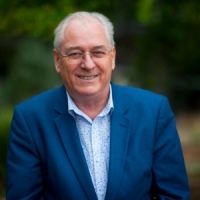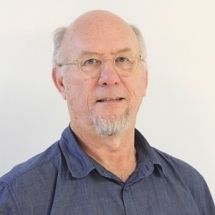 Eva Burrows College shares in The University of Divinity’s long tradition of research excellence. The University produces world-class research in all theological disciplines. Eva Burrows College actively fosters a vibrant research culture through research projects, publications, conferences, and seminars.
Eva Burrows College shares in The University of Divinity’s long tradition of research excellence. The University produces world-class research in all theological disciplines. Eva Burrows College actively fosters a vibrant research culture through research projects, publications, conferences, and seminars.
Students who meet the entry requirements may enrol in our higher degrees by research (HDRs). Prospective HDR students may enrol in a research methodology unit or in the Graduate Certificate in Research Methodology (GCRM) which includes a 16,000 word Minor Thesis in order to prepare for their research project.
Higher Degrees by Research
- Master of Philosophy (MPhil) The Master of Philosophy is a higher degree by research in divinity or one or more of its associated disciplines and is designed for individuals who bring a foundation within this disciplinary range. The purpose of the Master of Philosophy is to qualify individuals to apply an advanced body of knowledge in divinity or one or more of its associated disciplines in a range of contexts and to provide a pathway for possible further learning. Please refer to the website for study load and admission criteria.
- Doctor of Philosophy (PhD) The Doctor of Philosophy is a higher degree by research in divinity or one or more of its associated disciplines. The purpose of the Doctor of Philosophy is to qualify individuals who apply a substantial body of knowledge to research, investigate and develop new knowledge in one or more areas of investigation, scholarship or professional practice. PhD candidates present their research in a thesis of no more than 100,000 words that is examined by at least two external examiners. All candidates must attend a minimum of eight hours of research seminars each year at the University and either a University Research Day or a research conference each year.
- Doctor of Professional Practice (DPP) The Doctor of Professional Practice is designed for experienced practitioners to develop advanced knowledge and skills relevant to their professional context. Integrating critical thinking, spiritual awareness and theological engagement with knowledge and lived experience, the program equips mature professionals to develop their research competency and make impactful contributions in their fields. Graduates of the program are innovative and collaborative practitioners who integrate understandings of self, profession, systems and context. As thought leaders, they model what it is to do deep work.
Research Supervision
Supervision available in;
- Biblical Studies
- History
- Humanities
- Languages
- Philosophy
- Religious Studies
- Systematic Theology
- Theology: Ministry and Mission
Supervisors
Research at Eva Burrows College is facilitated, supported and enriched by our experienced qualified team of Supervisors.
 |
 |
 |
|
Reverend Professor Glen O'Brien Research Coordinator |
||
|
Areas of Specialisation
|
Areas of Specialisation
|
Areas of Specialisation
|
 |
 |
|
| Dr Matthew Seaman | ||
|
Areas of Specialisation
|
Areas of Specialisation
|
Honorary Postdoctoral Associate
 Dr Sue Holdsworth is an Honorary Postdoctoral Associate at Eva Burrows College. Dr Holdsworth is the author of 'Learning to Love: Utilizing the Principles and Practices of Pastoral Care for Mission'. Eugene: OR: Wipf and Stock, 2024. Her University of Divinity PhD thesis (2022) was titled, ‘A Critical Comparative Analysis of Four, Church-based, Intercultural Initiatives in the Multicultural City of Melbourne.’
Dr Sue Holdsworth is an Honorary Postdoctoral Associate at Eva Burrows College. Dr Holdsworth is the author of 'Learning to Love: Utilizing the Principles and Practices of Pastoral Care for Mission'. Eugene: OR: Wipf and Stock, 2024. Her University of Divinity PhD thesis (2022) was titled, ‘A Critical Comparative Analysis of Four, Church-based, Intercultural Initiatives in the Multicultural City of Melbourne.’
According to one of the examiners, UK Salvationist scholar Dr Helen Cameron, Dr Holdsworth, ‘demonstrated expert knowledge of a substantial body of scholarship and produced a piece of original research that can inform future scholarship and practice.’
Dr Holdsworth's research interests include the Australian church and local mission.
Honorary Research Associate

Dr Angela Sawyer is an Honorary Research Associate at Eva Burrows College. Her University of Divinity PhD thesis (2017) was titled, ‘Reading the Exilic Theology of Isaiah 40-55 in the Context of Post-church Australia.’ Angela is currently Head of Bible and Senior Lecturer at ACOM, Sydney College of Divinity.
Her areas of research interest are Isaiah and OT prophets; exile; the relationship between Bible, trauma, violence and growth; feminist criticism; rhetorical criticism; and the pedagogy of biblical studies.
Her most recent publications include:
- "The Lost and Found Children of Daughter Zion in Deutero-Isaiah." In Violence against Women and Children in the Hebrew Bible: Between Trauma and Resilience, edited by Kristine Henriksen Garroway, Hyun Chul Paul Kim, and John W. Martens, London: T&T Clark Bloomsbury, 2024.
- “Deutero-Isaiah’s Daughter Zion as Survival Literature: Terror Management Theory.” In When Psychology meets the Bible, edited by Heather A. McKay, and Pieter van der Zwan, 104-129. Sheffield Phoenix, 2023
- “Desolate, Devastated, Redeemed, Restored: Feminist Visions of Daughter Zion in the Australian Context.” In Terror in the Bible: Rhetoric, Gender, and Violence, edited by Monica Jyotsna Melanchthon, and Robyn J. Whitaker, 89-105. Atlanta: SBL Press, 2021
"Engaging in research projects has enabled me to go deeper into issues that I am passionate about and to generate new insights and learning that have been helpful. My passion is for those who are engaged in ministry to thrive and sustain their holistic well-being. I have been able to delve deeper into this topic through exploring the pastoral care services provided to officers by The Salvation Army. An outcome from this research was the opportunity to present findings and recommendations to the Policy Council with the development of a policy on supervision and spiritual direction.
Investigating how clergy have developed spiritual resilience and thrived in ministry has also been of benefit. The findings from this research have informed my teaching and personal life. There have been opportunities to share the themes that emerged from this research with officers and ministry workers at their regular residential reviews, with a summary being shared with some of those in leadership in the organisation. For me the benefit of research is about learning and discovering new insights and for these insights to inform practice."
Major Dr Christine Unicomb